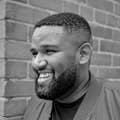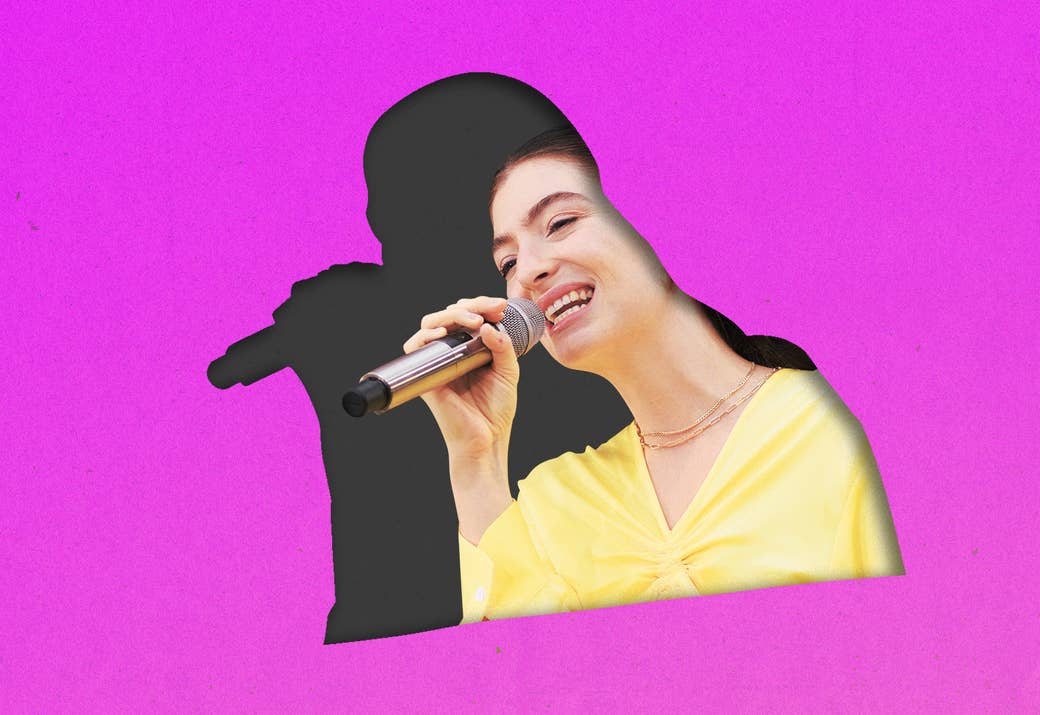
In her brilliant 2019 book, How to Do Nothing: Resisting the Attention Economy, Jenny Odell warns against “context collapse,” or the ways technology can flatten us into the most universal version of ourselves. For many of us, that happens automatically online — we begin writing for an imagined broad audience, the lowest common denominator. Frequently, it makes for a barrage of ubiquitous, impersonal, and inoffensive communication that ultimately doesn’t mean much. But what if we worried less about “people who have no context for us,” Odell wondered in a 2019 Vox interview, and instead focused on speaking to people who know us and want to hear from us? What would we say then?
Lorde recently told the New York Times that Odell’s book was one of the inspirations for her third album, Solar Power, which arrived last week. After a four-year hiatus, the singer has returned with a bright album that wants you to slow down, put away your phone, maybe even delete your social media, look up to the sky, and “hope the sun will show us the path.” Ocean waves and cicadas are woven into the sonic landscape. Notice the trees. Notice the grass under your bare feet. Take a seat, man. Relax.
It’s a steady album, devoid of Lorde’s signature big choruses. Scan its 12 tracks and you’ll find a record entirely unconcerned with hit-making. Lorde is no longer in the smash business. She’s fresh out of bangers. Alongside the shift in focus, Lorde has also telegraphed a shift in ambition: She told the Wall Street Journal she doesn’t want to play arenas anymore. “I would much rather have a room with 5,000 people in it who know every word to every song … than have 18,000 people who heard two songs on the radio and liked them,” she said. “I’m an amphitheater girl. I’m a 150-year-old theater girl.”
So the old Lorde can’t come to the phone right now. The scaled-back sounds of Solar Power make for an album that is only interested in its own rubric for success, satisfied to lounge and breathe deeply. It’s also not on its own: Solar Power fits in with a pop moment where other stars like Billie Eilish are pulling back, no longer expanding their audience at all costs and no longer striving for ubiquity. Welcome to the age of the reluctant pop star.
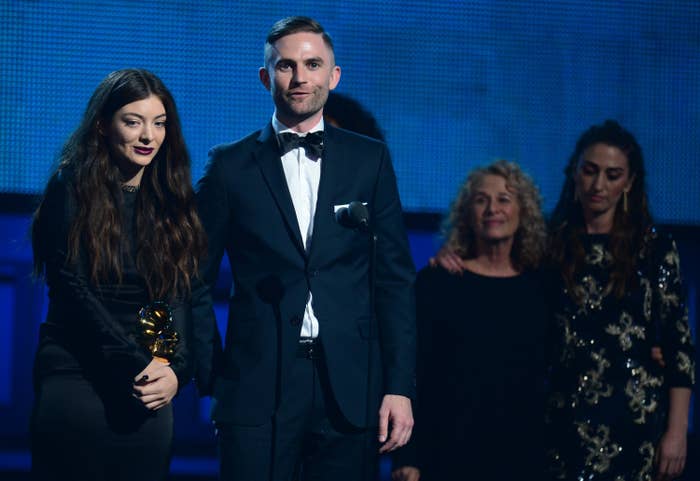
For much of her time in the limelight, Lorde made songs that resolved in euphoria, built to be shouted from the rooftops and the nosebleeds. Lorde, whose real name is Ella Yelich-O’Connor, exploded on the scene with force: Her first single, the infectious “Royals,” spent nine weeks at No. 1.
“Royals” nabbed two Grammys and a bouquet of accolades. It helped push her debut album, 2013’s Pure Heroine, to triple-platinum status in the US. The song was a triumph, and it was also unmistakably on her own terms. It was an outsiders’ anthem. It was the pop song for the skeptics: “We aren’t caught up in your love affair,” she declared. David Bowie hailed Lorde as “the future of music.”
How do you top that? Well, how about with one of the best pop albums of the decade? Lorde followed up Pure Heroine with 2017’s Melodrama, a taut and precise record built around the concept of “the arc of an evening,” which is a more poetic way of saying the events of a single house party.
So what do you do when you’ve recalibrated the standards for pop music? Lorde opted to disappear.
Melodrama gave Lorde new bona fides as a songwriter and producer. She broke the rules and got away with it: She revealed that she played the album’s lead single, “Green Light,” to legendary pop producer Max Martin, and he told her that the song was a demonstration of “incorrect songwriting.” Not that she took it personally: Martin knows how to make a hit, and “Green Light” does not cohere with what we know about hits. That kind of boundary-pushing earned Melodrama a nomination for Album of the Year. In 2020, just three years after the album came out, Rolling Stone admitted it into its 500 Greatest Albums of All Time list, at No. 460.
The thing is: 460 feels low. Check this space in a decade, because Melodrama will climb into the 200s as its influence continues to ripple out. In the span of two albums, Lorde managed to push the reset button on what pop expects from women — or as the Ringer put it, Lorde “completely rewrote the rules for young women making radio-friendly pop.” Namely, she offered a new path, away from what the New Yorker called the “sugary-sweet, overtly sexual realm” and toward something more internal, brooding, and at times even feral.
Still, Lorde’s sphere of influence was not limited to aesthetics and thematics. Her sonic descendants number a dozen, too: Her trademark conversational singing — at times dropping as low as a whisper — is the lingua franca of pop today. The Spinoff pointed out that her natural singing mode is now so common, “it’s easy to forget it would not have been associated with pop ten years ago or fewer.” There is no shortage of household names that owe a great debt to Lorde’s success — the likes of Billie Eilish, Olivia Rodrigo, Alessia Cara, Halsey, and Daya just to name a few.
So what do you do when you’ve recalibrated the standards for pop music? Lorde opted to disappear. She deleted her social media pages and retreated to New Zealand. “That whole Lorde thing doesn’t and hasn’t really come up,” one of her friends told the New York Times. “I’ve probably said the word ‘Lorde’ maybe like — I can count it on one hand.” She surfaced again this summer, but when she came back, the vibes had shifted.
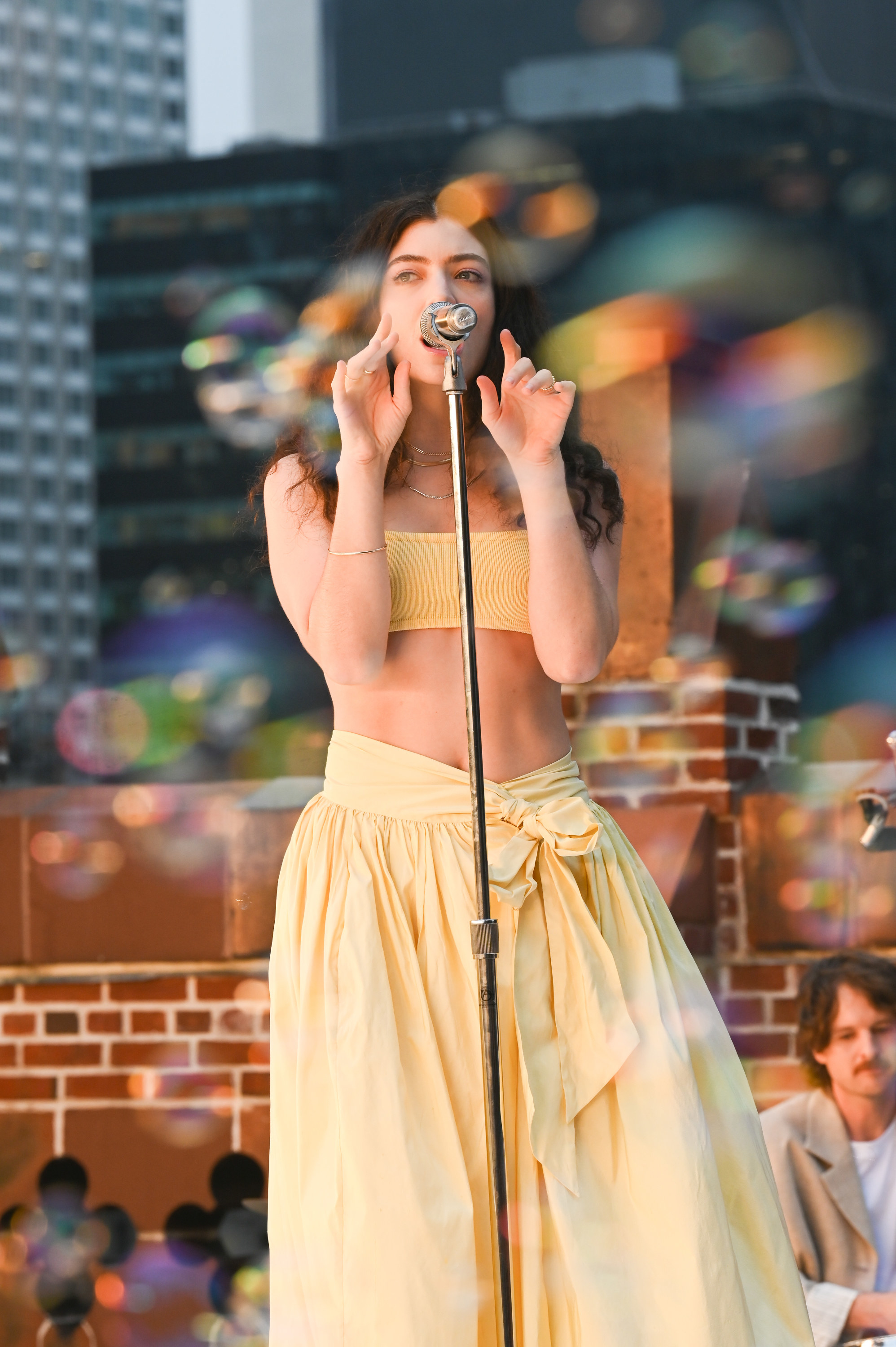
Solar Power opens with a double-barrelled thesis statement. There’s “The Path,” a flute-heavy, cicada-sampling track that reminds us of where Lorde started (“teen millionaire having nightmares from the camera flash”) and where she is now (“Now I’m alone on a windswept island”). Proudly, she declares she “won’t take the call if it’s the label or the radio.” Lorde bursts the listener’s expectations early: “if you’re looking for a savior, that’s not me,” she softly sings. Then onto the title track, a bouncy song inviting you to feel renewed by the warmth of the sun.
The pair of opening tracks are a signal of what’s to come: Far from being an album obsessed with the trappings of modern pop stardom, it’s a record about divestment from those ideas. This isn’t to say she is doing less — her melodies are still complex. Her writing is sharp as hell (“You felled me clean as a pine”). She is still making use of her sing-speaking superpower.
But much of the album resists the big choruses of Lorde’s previous work. No catharsis, just vibes. It’s definitely a headphone album; its gifts are in the layering and the execution of subtle details. There is no dancefloor payoff here — and for an artist who was so adept at delivering those payoffs, it is at first jarring that they are so scarce. But Solar Power rewards repeat listens. “Secrets From a Girl,” a heartfelt letter to her younger self, elicits a tender, nostalgic feeling, aided by Robyn on the outro, playing a flight attendant welcoming you to “sadness” after a flight on “Strange Airlines.” Meanwhile, “Dominoes” shows off Lorde’s fidelity to writing a hook, immediately undercut by the quiet acoustic guitar and the distant ambulance sirens in the background.
On “California,” Lorde is forthcoming about how fame began to seep into her life, recalling when Carole King presented her with the Grammy for Song of the Year in 2014 (“Once upon a time in Hollywood / when Carole called my name”), but the song transforms into a breakup song with superstardom (“I don’t miss the poisoned arrows aimed directly at my head”). On the very next track, Lorde makes room for doubt about her new direction — “Got a wishbone drying on the windowsill in my kitchen / just in case I wake up and realize I’ve chosen wrong,” she sings.
Lorde remains one step ahead of you: If all of this business about leaving fame behind and following the sun feels a little woo-woo, she warns that she is not advocating that we take up wellness culture. She satirizes the Goop-y approach to mental health (“I’m tryna get well from the inside / Plants and celebrity news / All the vitamins I consume”) on the album’s third single, “Mood Ring.”
As an album, Solar Power works fine. As an argument, it works even better. Lorde is setting clear boundaries with this record. This isn't about earning radio play or expanding the fan base. Hell, it isn’t even about fan service. It’s, specifically, about not creating music for the lowest common denominator. It’s music that would sound odd in an arena. There is, in Solar Power, a hyperspecificity that runs counter to the demands of music that appeals to masses. This is, perhaps, a version of Odell’s prescription: creating for people who have context for you. It’s the album version of making your world smaller and delighting in the details.
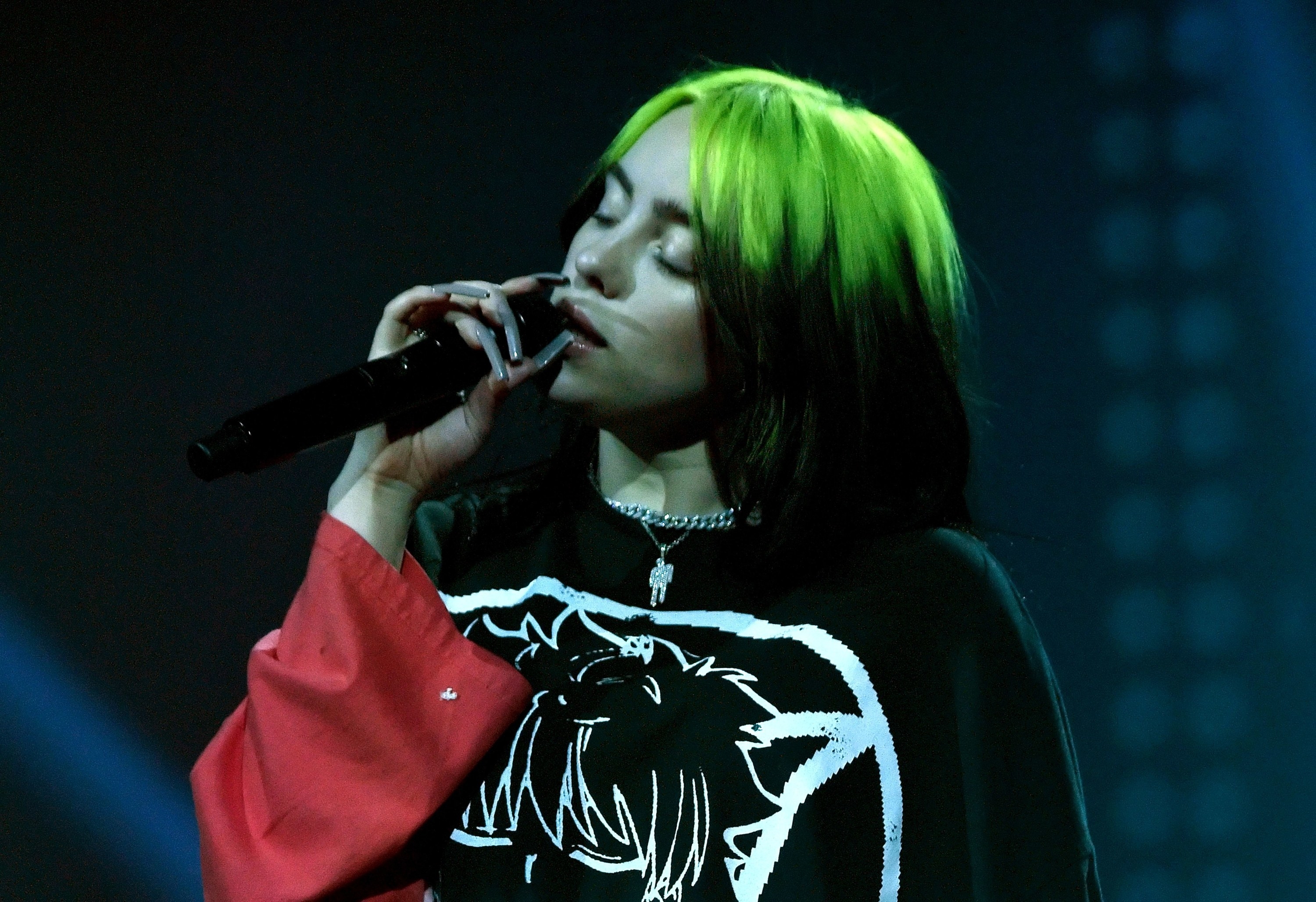
Lorde is not the only one making her world smaller. Solar Power feels like it is in conversation with Billie Eilish’s latest offering, Happier Than Ever, which was released in late July and debuted at No. 1. Happier, Eilish’s follow-up to the monster success of 2019’s When We All Fall Asleep, Where Do We Go?, is similarly suspicious of pop ubiquity. “Things I once enjoyed,” croons Eilish on the album opener, “just keep me employed now.” Make no mistake about it: She’s clocking in for work, and that’s the extent of this relationship.
Eilish’s initial breakthrough was a bit of a mystery. She emerged as her own subculture, a supernova of youth internet culture, a veritable IYKYK. At first she seemed cagey about even trying to speak to a wider audience. Even as she got more attention, she took her time releasing a debut album — nearly four years passed between when Eilish dropped “Ocean Eyes” on SoundCloud and the release of her studio album. By the time she was being acknowledged in mainstream music press, she already had a billion streams.
In other words, she didn’t really need the machinery of pop stardom to blow up. She went years without a banger to speak of — that is, until “Bad Guy.” A slinky, vampy mega hit, “Bad Guy” broke multiple records and catapulted her to superstardom. It ended the legendary 19-week run of “Old Town Road” at No. 1, and in the process made Eilish the first artist born in the 2000s to score a chart-topper.
One imagines that after the overwhelming success of “Bad Guy,” Eilish’s label might have offered her the world. If she wanted, she probably could have worked with any big-name producer or any of the dozen or so reliable hitmakers. Instead, she leaned deeper into her partnership with her brother Finneas, who produces and cowrites all of her music.
One imagines that after the overwhelming success of “Bad Guy,” Eilish’s label might have offered her the world.
Sonically, a couple of songs nod in the direction of “Bad Guy,” but Happier is frequently a down-tempo, interior record. This isn’t to say it’s dull: “NDA” gives a moving account of Eilish attempting to find her way around love while being famous. Meanwhile, “Your Power” takes on abusive older men. It’s just not an album obsessed with casting a wide net or elbowing for room on the radio.
Instead, it’s entirely about boundaries. Happier’s main thesis is the tension between wanting to create and perform music in public, and how much the public is entitled to. And why should the public be entitled to more? Eilish has been through the ringer, from stalkers to body shamers. Her motivations may be different than Lorde’s, but you get the impression that she is keeping her world small to survive, too.
On the other end of the spectrum, there’s Justin Bieber. The singer released Changes in 2020 and seemed so happy and in his element singing R&B songs and keeping distance from pop superstardom. Accompanying Changes, Bieber released a 10-part documentary series that chronicled how the dizzying heights of fame nearly killed him.
But he returned in 2021 aiming for total dominance with Justice, an album that was vague and centerless. It’s not even convincing that he wants to be going through the pop star motions. Slot in Shawn Mendes there too.
All of this raises the prospect that perhaps we should stop calling on these people to perform the traditional duties of pop stars. They don’t seem interested in the job. Or more precisely, the obligations of being a star, of making music with democratic appeal, are starting to seem like impositions.
On “White Teeth Teens,” from Lorde’s debut album, she sings about the allure of popular kids and their gravitational pull. But on the bridge of the song, her voice drops low, as if she’s leaning in close. “I’ll let you in on something big,” she tells the listener. “I am not a white teeth teen / I tried to join, but never did / The way they are, the way they seem.” From the beginning, Lorde was staking out her ground: I want in, but I am suspicious.
On Solar Power, Lorde telegraphs that her early suspicions were proven right, that being an insider, an avatar of a pop star is not for her. She told the Times that rather than thinking of her hiatus as a pause from her famous-singer life, it’s the inverse. Her non-famous life, with her friends and family, that’s the default: “I’m like, ‘Oh, no, no, no — this is a break from my life.’ I come back and perform these duties because I believe in the album.” You get the sense that she’s following her own advice, too — “Spend all the evenings you can with the people who raised you,” she sings on “Stoned at the Nail Salon.”
The pandemic has accelerated a move away from entwining your work with your identity, and there is no good reason why that shouldn’t apply to pop stars. Real life, as Lorde describes it, is the sturdy stuff — the place you live and the people who surround you and, from time to time, noticing the sunlight on your face — not the responsibilities and the constant cycle of trying to speak to people who don’t have much of a context for you. Yes, there is work to be done, but after you clock out, you can go home, turn inward, and connect with the place where joy comes from for you. “Come on and let the bliss begin,” Lorde sings. Just follow the sun. ●
